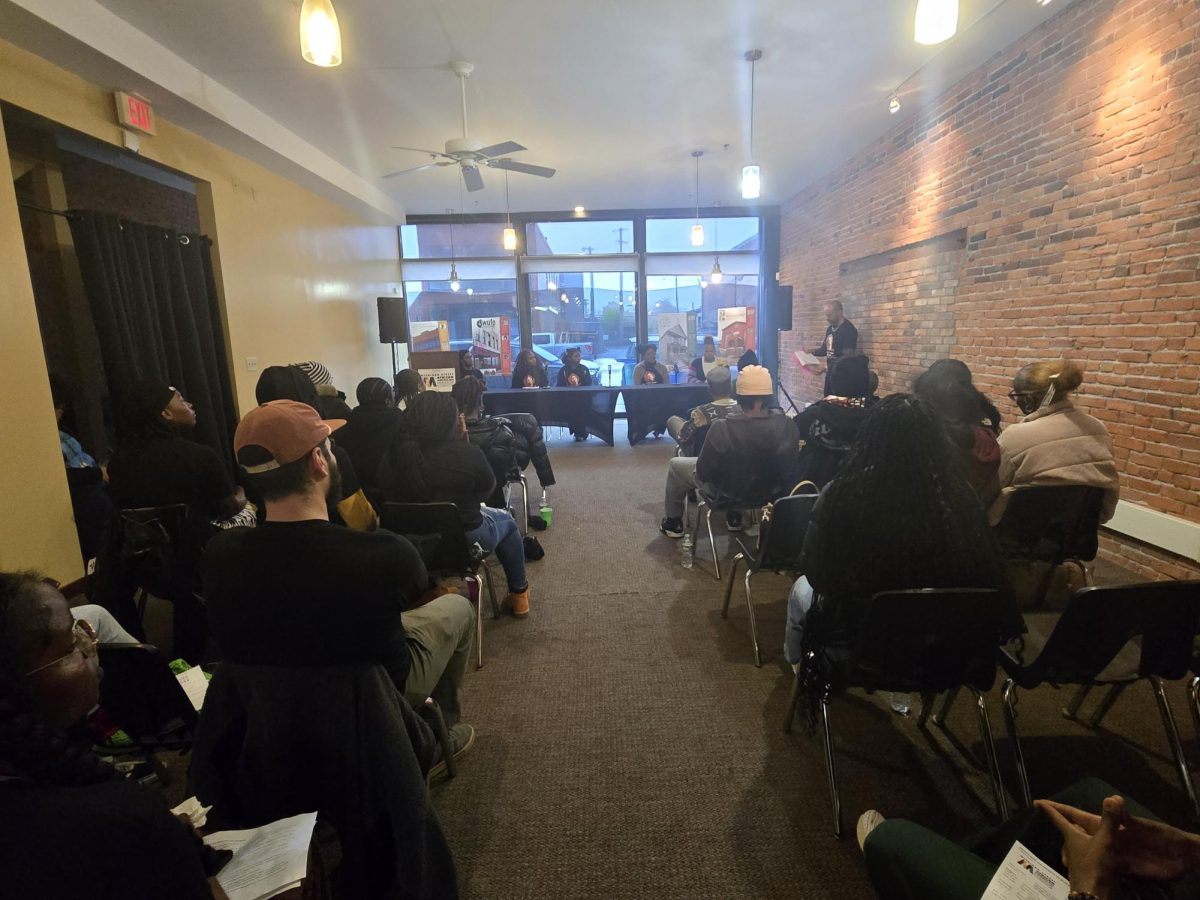Increase in tuition raises challenges for students
February 4, 2015
As part of Gov. Andrew Cuomo’s NY-SUNY 2020 Challenge Grant Program Act, tuition for SUNY Buffalo State students has increased by $300 this year. The SUNY Board of Trustees first put this five-year plan for SUNY schools to a vote, and then to action in 2011.
“[It] authorizes the SUNY Board of Trustees to increase resident undergraduate tuition up to $300 per year for five years and increase non-resident undergraduate tuition up to 10 percent per year for five years at the four University Centers,” Buffalo State Financial Aid Office Director, Connie Cooke, said.
Despite the challenges, Cooke said the tuition increase will bring, the reasoning behind the plan had good intentions and does have benefits.
“For decades, sudden tuition hikes have been detrimental to students,” Cooke said. “The NY-SUNY 2020 Bill instituted rational and predictable tuition reform in New York State, providing peace of mind for SUNY students and their families to plan for tuition increases.”
Cooke also added that the tuition increases are necessary to offset the continued reductions to the state-based appropriations, and tuition revenue provides predictable income for Buffalo State to meet operational needs and maintain an excellent learning environment for students.
However, when asked about the tuition increase, several students were unaware that their tuition increased, or that there was a plan behind it. Some students were also not thrilled to learn about it
“How well was this plan advertised? This is the first time I’ve heard of it and I am concerned if others are aware of it. Also, I would like to know where the money is going.” said Xavier Riley, a junior art communication major at Buffalo State.
Ashley Valeria, a junior biology major at Buffalo State, also wasn’t aware about the tuition increase.
“I thought I heard that they were doing something with financial aid, but I didn’t really know much about it,” Valeria said. “It’s already expensive enough. I already have a lot of loans and it’s going to be hard to pay them off. A lot of people don’t pay off their debt until they’re 30. I don’t think its good for the economy, it will just increase debt.”
Janelle Johnson, a junior art major, shared similar concerns. “It’s not much, but it will add up. Obviously there’s paying off more loans. It takes away money from other things like rent or books.”
“I don’t think “peace of mind” is a valid enough reason for raising tuition,” Riley said. “It doesn’t immediately affect me, but it does affect my parents. Students will need to shell out $300 more per semester, which isn’t as easy as it sounds.”
While $300 may not seem like much on top of the tuition and fees students that are already charged, it can be hard for some students to pay it off. With the current prices of college, many students have to rely on financial aid, loans, their parents and part-time jobs to pay for everything.
“I get TAP and EOP, but EOP doesn’t cover much,” Valeria said. “I take out so many loans.”
“Right now its split between me and my dad,” Johnson said. “I’m paying it off when I’m done. I’ve been trying to sell stuff online too.”
“My parents help pay. I’m looking for a job, and with the increase in tuition, now I’ll need to look for one that pays better,” Riley said.
For students who are concerned, as tuition increases Buffalo State will be giving out more grants and scholarships.
“Buffalo State College is required to provide financial assistance through the SUNY Tuition Credit (SUNYTC) for Tuition Assistance Program (TAP) eligible students for the 2013-2014 Academic Year, and Buffalo State College provided assistance to over 4,800 students in excess of $2.2 million,” Cooke said.
And for students who still have financial issues with the increasing tuition, there are other solutions.
“Dependent undergraduate students can request a parent to apply for The Federal Direct PLUS Loan. This loan is in the parent’s name,” Cooke said.
“All students can apply for a private loan. This loan is a nonfederal loan made by a lender such as a bank, credit union, or state agency. There are many considerations a student and family should take to decide if a private loan is the best option for them. Students can also apply for available scholarships and work to help cover their educational expenses.”
Email: lambie.record@outlook.com



